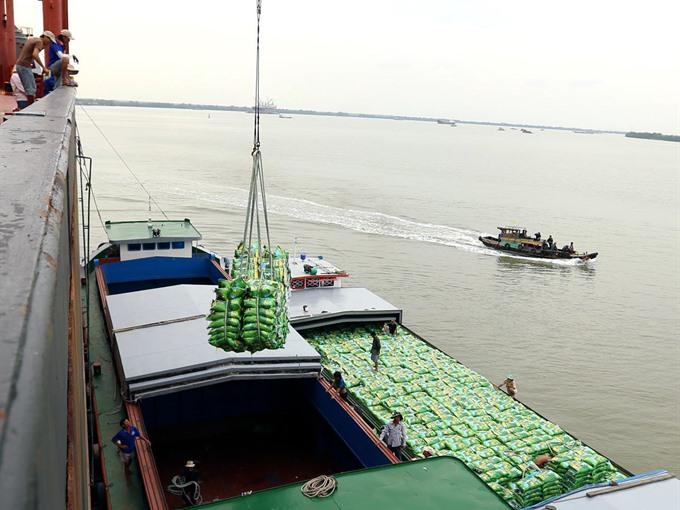Viet Nam should have policies and more support for local businesses in trade activities with partners in the Middle East and Africa.

Viet Nam should have policies and more support for local businesses in trade activities with partners in the Middle East and Africa.
Experts made the suggestion at a conference on foreign affairs with export activities of local agricultural and seafood products to the Middle East – Africa market held by the Ministry of Foreign Affairs in Ha Noi on July 5.
At the conference, Do Quoc Hung, deputy director of the Ministry of Industry and Trade’s Asia–Africa Market Department, said the Middle East –Africa market includes 70 countries with a population of over 1.6 billion, with great demand for the import of goods, especially agricultural and seafood products. The region has harsh natural conditions and is unable to produce agro and seafood products for domestic consumption. This is considered an important market for Vietnamese exporters.
Hung said that among Vietnamese agricultural exports to the Middle East-Africa market, rice, a traditional commodity, would continue to be a major product for this market in the future.
Entering the Middle East-Africa market is a good solution to boost exportation of agricultural and seafood products, avoiding dependence on traditional markets, Hung said.
During the conference, Deputy Director of the Ministry of Agriculture and Rural Development’s Agro Processing and Market Development Authority, Tran Van Cong, spoke of advantages and disadvantages in exporting Vietnamese agricultural products to markets in the Middle East and Africa.
The markets do not have high food safety standards but local firms must enforce tax policies and technical barriers because Viet Nam and countries in the Middle East and Africa have not signed free trade agreements.
In addition, local firms have also faced high risks in receiving payment because many importers in the Middle East and Africa do not pay immediately. Especially, in Africa, Vietnamese companies face fierce competition with rivals that have accepted deferred payments from African partners. Vietnamese businesses have often asked their African partners to pay immediately, causing many of them to seek other suppliers that accept deferred payments.
To promote exports of farming and seafood products to the Middle East and Africa markets, Hung said Viet Nam should continue to improve its legal framework, mechanisms and policies for creating favourable conditions for local enterprises to do business in this market.
Viet Nam and countries in the Middle East and Africa need to study and speed up the signing of cooperation agreements to enhance further trading activities for agricultural and seafood products, he said.
They should actively promote bilateral cooperation via the joint commissions between Viet Nam and countries in the Middle East and Africa. Viet Nam needs to step up its trade promotion activities and support enterprises in attending trade fairs and exhibitions. Those activities would help them seek partners and advertise local products in the Middle East and Africa markets.
The Ministry of Industry and Trade, the Ministry of Agriculture and Rural Development, the Viet Nam Food Association and exporters should establish a cooperative mechanism to promote agricultural and seafood exports to such markets.
Deputy Minister of Foreign Affairs Vu Hong Nam said that support and cooperation with Middle Eastern and African countries is increasing. With more than one billion people, the market has high purchasing power but Viet Nam’s enterprises have yet to fully tap this market.
The conference created opportunities in promoting economic and trade cooperation in the future, Nam said. — VNS





